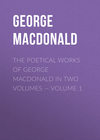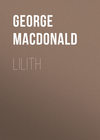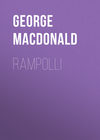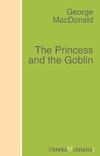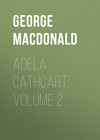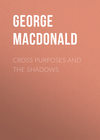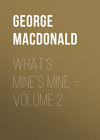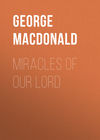Czytaj książkę: «The poetical works of George MacDonald in two volumes — Volume 1», strona 11
Czcionka:
SCENE XVI.—JULIAN walking with LILY through one of the squares
Lily.
Wish we could find her somewhere. 'Tis so sad
Not to have any mother! Shall I ask
This gentleman if he knows where she is?
Julian.
No, no, my love; we'll find her by and by.
BERNARD. and another Gentleman talking together.
Bernard.
Have you seen Seaford lately?
Gentleman.
No. In fact,
He vanished somewhat oddly, days ago.
Sam saw him with a lady in his cab;
And if I hear aright, one more is missing—
Just the companion for his lordship's taste.
You've not forgot that fine Italian woman
You met there once, some months ago?
Bern.
Forgot her!
I have to try though, sometimes—hard enough:
Her husband is alive!
Lily.
Mother was Italy, father,—was she not?
Julian.
Hush, hush, my child! you must not say a word.
Gentleman.
Oh, yes; no doubt!
But what of that?—a poor half-crazy creature!
Bern.
Something quite different, I assure you, Harry.
Last week I saw him—never to forget him—
Ranging through Seaford's house, like the questing beast.
Gentleman.
Better please two than one, he thought—and wisely.
'Tis not for me to blame him: she is a prize
Worth sinning for a little more than little.
Lily
(whispering).
Why don't you ask them whether it was mother?
I am sure it was. I am quite sure of it.
Gentleman.
Look what a lovely child!
Bern.
Harry! Good heavens!
It is the Count Lamballa. Come along.
SCENE XVII.—Julian's room. JULIAN. LILY asleep
Julian.
I thank thee. Thou hast comforted me, thou,
To whom I never lift my soul, in hope
To reach thee with my thinking, but the tears
Swell up and fill my eyes from the full heart
That cannot hold the thought of thee, the thought
Of him in whom I live, who lives in me,
And makes me live in him; by whose one thought,
Alone, unreachable, the making thought,
Infinite and self-bounded, I am here,
A living, thinking will, that cannot know
The power whereby I am—so blest the more
In being thus in thee—Father, thy child.
I cannot, cannot speak the thoughts in me.
My being shares thy glory: lay on me
What thou wouldst have me bear. Do thou with me
Whate'er thou wilt. Tell me thy will, that I
May do it as my best, my highest joy;
For thou dost work in me, I dwell in thee.
Wilt thou not save my wife? I cannot know
The power in thee to purify from sin.
But Life can cleanse the life it lived alive.
Thou knowest all that lesseneth her fault.
She loves me not, I know—ah, my sick heart!—
I will love her the more, to fill the cup;
One bond is snapped, the other shall be doubled;
For if I love her not, how desolate
The poor child will be left! he loves her not.
I have but one prayer more to pray to thee:—
Give me my wife again, that I may watch
And weep with her, and pray with her, and tell
What loving-kindness I have found in thee;
And she will come to thee to make her clean.
Her soul must wake as from a dream of bliss,
To know a dead one lieth in the house:
Let me be near her in that agony,
To tend her in the fever of the soul,
Bring her cool waters from the wells of hope,
Look forth and tell her that the morn is nigh;
And when I cannot comfort, help her weep.
God, I would give her love like thine to me,
Because I love her, and her need is great.
Lord, I need her far more than thou need'st me,
And thou art Love down to the deeps of hell:
Help me to love her with a love like thine.
How shall I find her? It were horrible
If the dread hour should come, and I not near.
Yet pray I not she should be spared one pang,
One writhing of self-loathing and remorse,
For she must hate the evil she has done;
Only take not away hope utterly.
Lily (in her sleep).
Lily means me—don't throw it over the wall.
Julian (going to her).
She is so flushed! I fear the child is ill.
I have fatigued her too much, wandering restless.
To-morrow I will take her to the sea.
[Returning.]
If I knew where, I would write to her, and write
So tenderly, she could not choose but come.
I will write now; I'll tell her that strange dream
I dreamed last night: 'twill comfort her as well.
[He sits down and writes.]
My heart was crushed that I could hardly breathe.
I was alone upon a desolate moor;
And the wind blew by fits and died away—
I know not if it was the wind or me.
How long I wandered there, I cannot tell;
But some one came and took me by the hand.
I gazed, but could not see the form that led me,
And went unquestioning, I cared not whither.
We came into a street I seemed to know,
Came to a house that I had seen before.
The shutters were all closed; the house was dead.
The door went open soundless. We went in,
And entered yet again an inner room.
The darkness was so dense, I shrank as if
From striking on it. The door closed behind.
And then I saw that there was something black,
Dark in the blackness of the night, heaved up
In the middle of the room. And then I saw
That there were shapes of woe all round the room,
Like women in long mantles, bent in grief,
With long veils hanging low down from their heads,
All blacker in the darkness. Not a sound
Broke the death-stillness. Then the shapeless thing
Began to move. Four horrid muffled figures
Had lifted, bore it from the room. We followed,
The bending woman-shapes, and I. We left
The house in long procession. I was walking
Alone beside the coffin—such it was—
Now in the glimmering light I saw the thing.
And now I saw and knew the woman-shapes:
Undine clothed in spray, and heaving up
White arms of lamentation; Desdemona
In her night-robe, crimson on the left side;
Thekla in black, with resolute white face;
And Margaret in fetters, gliding slow—
That last look, when she shrieked on Henry, frozen
Upon her face. And many more I knew—
Long-suffering women, true in heart and life;
Women that make man proud for very love
Of their humility, and of his pride
Ashamed. And in the coffin lay my wife.
On, on, we went. The scene changed, and low hills
Began to rise on each side of the path
Until at last we came into a glen,
From which the mountains soared abrupt to heaven,
Shot cones and pinnacles into the skies.
Upon the eastern side one mighty summit
Shone with its snow faint through the dusky air;
And on its sides the glaciers gave a tint,
A dull metallic gleam, to the slow night.
From base to top, on climbing peak and crag,
Ay, on the glaciers' breast, were human shapes,
Motionless, waiting; men that trod the earth
Like gods; or forms ideal that inspired
Great men of old—up, even to the apex
Of the snow-spear-point. Morning had arisen
From Giulian's tomb in Florence, where the chisel
Of Michelangelo laid him reclining,
And stood upon the crest.
A cry awoke
Amid the watchers at the lowest base,
And swelling rose, and sprang from mouth to mouth,
Up the vast mountain, to its aerial top;
And "Is God coming?" was the cry; which died
Away in silence; for no voice said No.
The bearers stood and set the coffin down;
The mourners gathered round it in a group;
Somewhat apart I stood, I know not why.
So minutes passed. Again that cry awoke,
And clomb the mountain-side, and died away
In the thin air, far-lost. No answer came.
How long we waited thus, I cannot tell—
How oft the cry arose and died again.
At last, from far, faint summit to the base,
Filling the mountain with a throng of echoes,
A mighty voice descended: "God is coming!"
Oh! what a music clothed the mountain-side,
From all that multitude's melodious throats,
Of joy and lamentation and strong prayer!
It ceased, for hope was too intense for song.
A pause.—The figure on the crest flashed out,
Bordered with light. The sun was rising—rose
Higher and higher still. One ray fell keen
Upon the coffin 'mid the circling group.
What God did for the rest, I know not; it
Was easy to help them.—I saw them not.—
I saw thee at my feet, my wife, my own!
Thy lovely face angelic now with grief;
But that I saw not first: thy head was bent,
Thou on thy knees, thy dear hands clasped between.
I sought to raise thee, but thou wouldst not rise,
Once only lifting that sweet face to mine,
Then turning it to earth. Would God the dream
Had lasted ever!—No; 'twas but a dream;
Thou art not rescued yet.
Earth's morning came,
And my soul's morning died in tearful gray.
The last I saw was thy white shroud yet steeped
In that sun-glory, all-transfiguring;
The last I heard, a chant break suddenly
Into an anthem. Silence took me like sound:
I had not listened in the excess of joy.
SCENE XVIII.—Portsmouth. A bedroom. LORD SEAFORD. LADY GERTRUDE
Lord S.
Tis for your sake, my Gertrude, I am sorry.
If you could go alone, I'd have you go.
Lady Gertrude.
And leave you ill? No, you are not so cruel.
Believe me, father, I am happier
In your sick room, than on a glowing island
In the blue Bay of Naples.
Lord S.
It was so sudden!
'Tis plain it will not go again as quickly.
But have your walk before the sun be hot.
Put the ice near me, child. There, that will do.
Lady Gertrude. Good-bye then, father, for a little while.
[Goes.]
Lord S.
I never knew what illness was before.
O life! to think a man should stand so little
On his own will and choice, as to be thus
Cast from his high throne suddenly, and sent
To grovel beast-like. All the glow is gone
From the rich world! No sense is left me more
To touch with beauty. Even she has faded
Into the far horizon, a spent dream
Of love and loss and passionate despair!
Is there no beauty? Is it all a show
Flung outward from the healthy blood and nerves,
A reflex of well-ordered organism?
Is earth a desert? Is a woman's heart
No more mysterious, no more beautiful,
Than I am to myself this ghastly moment?
It must be so—it must, except God is,
And means the meaning that we think we see,
Sends forth the beauty we are taking in.
O Soul of nature, if thou art not, if
There dwelt not in thy thought the primrose-flower
Before it blew on any bank of spring,
Then all is untruth, unreality,
And we are wretched things; our highest needs
Are less than we, the offspring of ourselves;
And when we are sick, they are not; and our hearts
Die with the voidness of the universe.
But if thou art, O God, then all is true;
Nor are thy thoughts less radiant that our eyes
Are filmy, and the weary, troubled brain
Throbs in an endless round of its own dreams.
And she is beautiful—and I have lost her!
O God! thou art, thou art; and I have sinned
Against thy beauty and thy graciousness!
That woman-splendour was not mine, but thine.
Thy thought passed into form, that glory passed
Before my eyes, a bright particular star:
Like foolish child, I reached out for the star,
Nor kneeled, nor worshipped. I will be content
That she, the Beautiful, dwells on in thee,
Mine to revere, though not to call my own.
Forgive me, God! Forgive me, Lilia!
My love has taken vengeance on my love.
I writhe and moan. Yet I will be content.
Yea, gladly will I yield thee, so to find
That thou art not a phantom, but God's child;
That Beauty is, though it is not for me.
When I would hold it, then I disbelieved.
That I may yet believe, I will not touch it.
I have sinned against the Soul of love and beauty,
Denying him in grasping at his work.
SCENE XIX.—A country churchyard. JULIAN seated on a tombstone. LILY gathering flowers and grass among the grass
Julian.
O soft place of the earth! down-pillowed couch,
Made ready for the weary! Everywhere,
O Earth, thou hast one gift for thy poor children—
Room to lie down, leave to cease standing up,
Leave to return to thee, and in thy bosom
Lie in the luxury of primeval peace,
Fearless of any morn; as a new babe
Lies nestling in his mother's arms in bed:
That home of blessedness is all there is;
He never feels the silent rushing tide,
Strong setting for the sea, which bears him on,
Unconscious, helpless, to wide consciousness.
But thou, thank God, hast this warm bed at last
Ready for him when weary: well the green
Close-matted coverlid shuts out the dawn.
O Lilia, would it were our wedding bed
To which I bore thee with a nobler joy!
—Alas! there's no such rest: I only dream
Poor pagan dreams with a tired Christian brain.
How couldst thou leave me, my poor child? my heart
Was all so tender to thee! But I fear
My face was not. Alas! I was perplexed
With questions to be solved, before my face
Could turn to thee in peace: thy part in me
Fared ill in troubled workings of the brain.
Ah, now I know I did not well for thee
In making thee my wife! I should have gone
Alone into eternity. I was
Too rough for thee, for any tender woman—
Other I had not loved—so full of fancies!
Too given to meditation. A deed of love
Is stronger than a metaphysic truth;
Smiles better teachers are than mightiest words.
Thou, who wast life, not thought, how couldst thou help it?
How love me on, withdrawn from all thy sight—
For life must ever need the shows of life?
How fail to love a man so like thyself,
Whose manhood sought thy fainting womanhood?
I brought thee pine-boughs, rich in hanging cones,
But never white flowers, rubied at the heart.
O God, forgive me; it is all my fault.
Would I have had dead Love, pain-galvanized,
Led fettered after me by gaoler Duty?
Thou gavest me a woman rich in heart,
And I have kept her like a caged seamew
Starved by a boy, who weeps when it is dead.
O God, my eyes are opening—fearfully:
I know it now—'twas pride, yes, very pride,
That kept me back from speaking all my soul.
I was self-haunted, self-possessed—the worst
Of all possessions. Wherefore did I never
Cast all my being, life and all, on hers,
In burning words of openness and truth?
Why never fling my doubts, my hopes, my love,
Prone at her feet abandonedly? Why not
Have been content to minister and wait;
And if she answered not to my desires,
Have smiled and waited patient? God, they say,
Gives to his aloe years to breed its flower:
I gave not five years to a woman's soul!
Had I not drunk at last old wine of love?
I shut her love back on her lovely heart;
I did not shield her in the wintry day;
And she has withered up and died and gone.
God, let me perish, so thy beautiful
Be brought with gladness and with singing home.
If thou wilt give her back to me, I vow
To be her slave, and serve her with my soul.
I in my hand will take my heart, and burn
Sweet perfumes on it to relieve her pain.
I, I have ruined her—O God, save thou!
[His bends his head upon his knees. LILY comes running up to him, stumbling over the graves.]
Lily.
Why do they make so many hillocks, father?
The flowers would grow without them.
Julian.
So they would.
Lily.
What are they for, then?
Julian (aside).
I wish I had not brought her;
She will ask questions. I must tell her all.
(Aloud).
'Tis where they lay them when the story's done.
Lily. What! lay the boys and girls?
Julian. Yes, my own child— To keep them warm till it begin again.
Lily. Is it dark down there?
[Clinging to JULIAN, and pointing down.]
Julian.
Yes, it is dark; but pleasant—oh, so sweet!
For out of there come all the pretty flowers.
Lily.
Did the church grow out of there, with the long stalk
That tries to touch the little frightened clouds?
Julian.
It did, my darling.—There's a door down there
That leads away to where the church is pointing.
[She is silent far some time, and keeps looking first down and then up. JULIAN carries her away.]
Gatunki i tagi
Ograniczenie wiekowe:
12+Data wydania na Litres:
15 września 2018Objętość:
360 str. 1 ilustracjaWłaściciel praw:
Public Domain